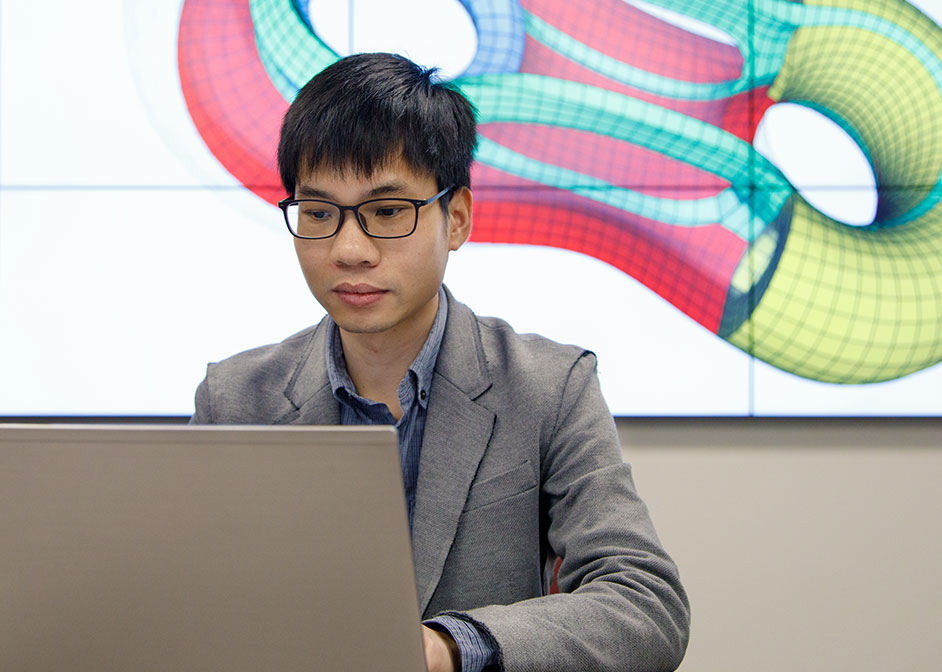Computer Science’s Kaoji Xu Works on Volumetric Mesh Generation
Designing a new product, such as the latest car model or smartphone, presents a number of challenges. Designers need to predict a new prototype’s functionality without resorting to building countless and expensive physical models.

To achieve this, designers perform simulations, which can offer insights about how a new feature or design can hold up under real-world conditions.
Rendering Prototype Designs into Mesh
Performing a simulation requires rendering the design into a form that can be understood by a computer. Typically, this is done by creating a mesh, which is a discrete representation of a three-dimensional object.
Kaoji Xu, a University of Houston Ph.D. student in computer science who graduated in May, focuses on creating volumetric meshes, which can be used to predict the internal forces, stresses and other physical properties throughout the entire volume of an object. In particular, Xu works on hexahedral meshes. These meshes use hexahedrons, which are topological cubes with eight corners, 12 edges and six quadrilateral faces, to fill the volume.
“Hexahedral mesh generation is an art,” said Xu, whose research was advised by Guoning Chen, associate professor of computer science in the College of Natural Sciences and Mathematics. “We still don’t have an automatic and robust way to produce a good hexahedral mesh for arbitrary input.”
Mesh Representations Offer Manageable Calculations
In contrast to a solid image of a prototype, which would have an infinite number of points, meshes represent a structure with a finite number of points. This leads to a manageable number of calculations for a simulation to run.
The trick is to create a mesh representation that will enable an accurate simulation, which can be computed within a reasonable timeframe.
“In terms of mesh generation, we prefer a simple structure,” Xu said.
Xu’s research focuses on optimizing these meshes, to improve the speed and accuracy of simulations.
If You Have Difficulties, Focus and Don’t Give Up
Xu has a prolific publication record, which includes papers accepted to some of the top conferences in the industry and academia, including the Symposium of Geometry Processing and the Institute of Electrical and Electronics Engineers (IEEE) Visualization Conference.
He also received travel support from the National Science Foundation to attend the 27th International Meshing Roundtable in Albuquerque, New Mexico.
“If you have difficulties with a problem, focus on it,” Xu said. “Sometimes your advisor can help you, sometimes you need to look into the papers deeply, but don’t give up.”
- Rachel Fairbank, College of Natural Sciences and Mathematics